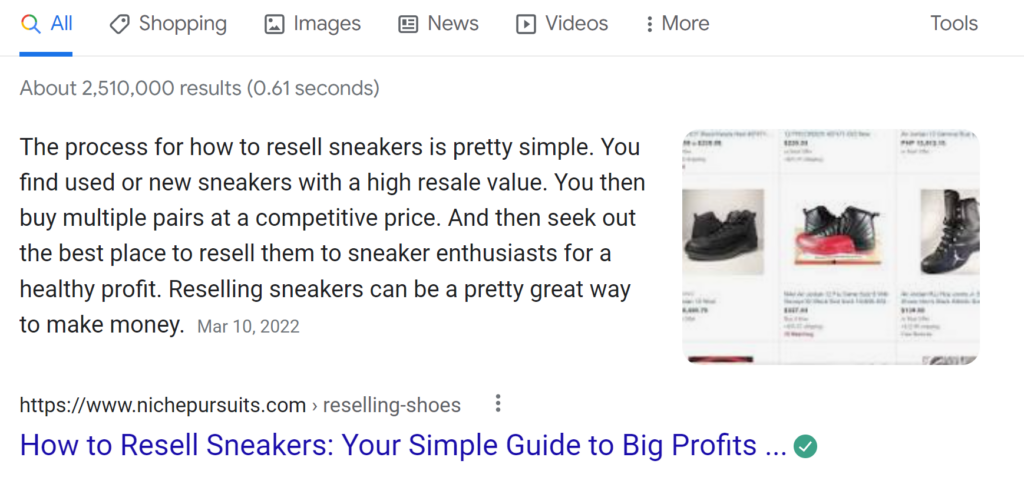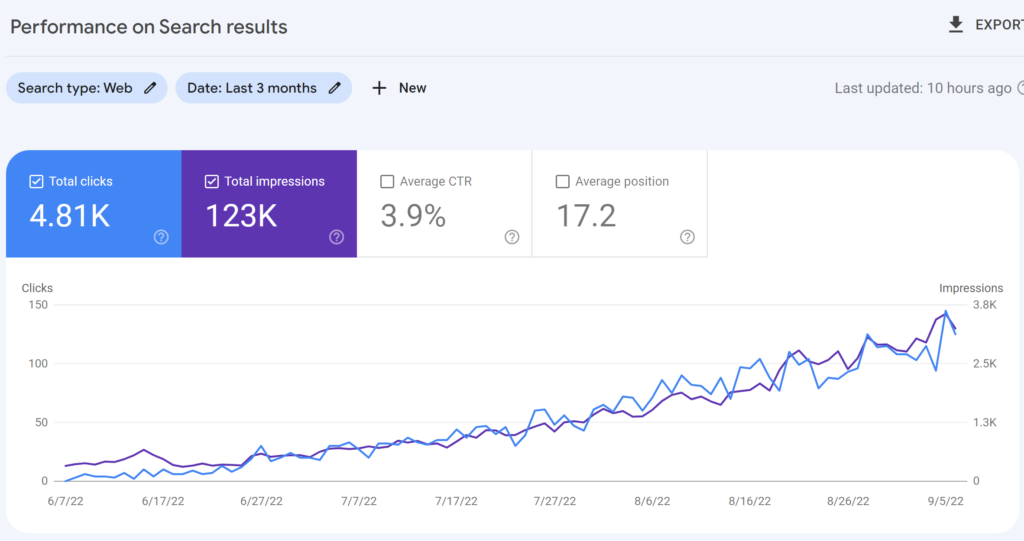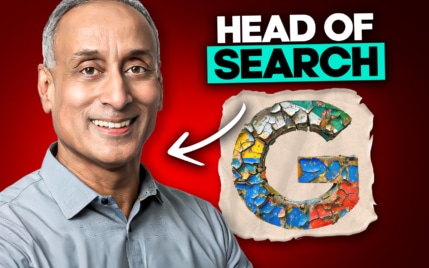71 SEO Abbreviations and Important Marketing Terms You Should Know

When you buy something through one of the links on our site, we may earn an affiliate commission.
SEO is the short form for “Search Engine Optimization.” It is a long-term marketing strategy employed to improve a website's visibility and organic search results in Google and other global search engines. There are many SEO abbreviations and associated terms that can confuse those not well-versed in the topic.
Are You in The Dark When it Comes to SEO Abbreviations?
OMG - if you don't know your KPIs from your CTAs, then you're in for a treat. This article covers some of the more common SEO abbreviations and terms that you might come across.
If you're looking to improve your website's ranking in search results, then this is a must-read! (And if you're not interested in improving your website's ranking, then why are you even here?) But seriously, if you want to learn about SEO and how to use it to your advantage, this article has got you covered!
So sit back, relax, and get ready to expand your SEO knowledge!
Contents
- Are You in The Dark When it Comes to SEO Abbreviations?
- SEO Abbreviations and Terms
- ALT: Short for “alternative text"
- Anchor Text
- Backlink
- Black hat SEO
- Bot
- CAPTCHA: Completely Automated Public Turing Test to Tell Computers and Humans Apart.
- CMS: Content Management System
- CRO: Conversion Rate Optimization
- Crawler
- CTA: Call to Action
- CTR: Click-through rate
- DA/DR: Domain Authority/Domain Rating
- DNS: Domain Name System
- Dofollow link
- Exact Match Domain
- Featured Snippet
- GMB: Google My Business
- GSC: Google Search Console
- GUI: Graphical User Interface
- H1: Heading 1
- H2, H3… : Headings 2, 3, etc.
- Hreflang
- HTML: HyperText Markup Language
- HTTP: HyperText Transfer Protocol
- HTTPS: HyperText Transfer Protocol Secure
- Impression
- Indexing
- IP Address
- Keyword
- Keyword Density
- Keyword Stuffing
- KPI: Key Performance Indicator.
- Landing Page
- Link Bait
- Local SEO
- Local Pack
- Long Tail Keywords
- LPO: Landing Page Optimization
- LSEO: Local Search Engine Optimization
- Meta Description
- Meta Tags
- NAP
- Nofollow Link
- Organic Traffic
- PA: Page Authority
- PAA: People Also Ask
- Paid Search
- PBN: Private Blog Network
- PPC: Pay-Per-Click
- PR: PageRank
- Query
- Redirection
- Rel=canonical
- ROI: Return On Investment
- Schema
- SE: Search Engine
- SEM: Search Engine Marketing
- SEO: Search Engine Optimization
- SERP: Search Engine Results Page
- Sitemap
- Spider
- SSL Certificate
- Status Codes
- Thin Content
- Title Tag
- Unique Content
- User Intent or Search Intent
- URL: Uniform Resource Locator
- UX: User Experience
- White hat SEO
- XML: Extensible Markup Language
- SEO Abbreviations
SEO Abbreviations and Terms
Some important SEO abbreviations you’ll want to know all about:
ALT: Short for “alternative text"
This is the text that appears in place of an image on a website if the image fails to load. This text is important for SEO because it allows Google to index the content of the page even if the images do not load.
Anchor Text
The visible, clickable text in a hyperlink.
Backlink
An incoming link to your website or a web page.
Black hat SEO
A type of SEO that uses aggressive and unethical techniques to achieve results. These techniques go against search engine guidelines and can result in penalties from Google (find out when or if you've been hit with these Google penalty checker tools).
Bot
Also known as a “Web crawler” or “spider,” it’s a software program that browses the internet in a methodical, automated manner.
CAPTCHA: Completely Automated Public Turing Test to Tell Computers and Humans Apart.
A CAPTCHA is a type of challenge-response test used to ensure that the response is not generated by a computer.
CMS: Content Management System
A software application used to create, edit, manage, and publish content on the web. WordPress and Drupal are examples of popular CMSs.
CRO: Conversion Rate Optimization
The process of optimizing a website to increase the percentage of visitors who take a desired action, such as making a purchase or filling out a form.
Crawler
A program used by a search engine to index websites and web pages.
CTA: Call to Action
A type of content that encourages visitors to take a specific action, such as subscribing to a newsletter or downloading a white paper.
CTR: Click-through rate
The percentage of people who click on a particular link out of the total number of people who see it.
DA/DR: Domain Authority/Domain Rating
Metrics used to predict how well a website will rank on search engines based on factors such as age, popularity, and size of the website.
DNS: Domain Name System
A system that converts a domain name (such as example.com) into an IP address (such as 127.0.0.1).
Dofollow link
A link that passes on “link juice” and helps to improve the search engine optimization of the website it is linking to.
Exact Match Domain
A domain that exactly matches the keywords someone is searching for. For example, if someone is searching for “plumber in Seattle” and there is a website called plumberinseattle.com, that would be an exact match domain.
Featured Snippet
A search result that appears at the top of the SERP, above the first organic result. It typically contains a summary of the answer to the user’s query, taken from a web page.

GMB: Google My Business
A free tool provided by Google that allows businesses to manage their online presence across Google products, such as Maps and Search.
GSC: Google Search Console
A free web-based tool provided by Google that helps website owners track, maintain, and troubleshoot their site’s presence on Google Search.

GUI: Graphical User Interface
A type of user interface that allows users to interact with electronic devices through the use of images rather than text commands. For example, the Windows operating system uses a GUI.
H1: Heading 1
The largest and most important heading on a web page. The H1 heading usually contains the title or main keyword of the page.
H2, H3… : Headings 2, 3, etc.
These are more minor headings that help to organize the content on a web page. H2 headings are usually secondary keywords or phrases, while H3 headings are typically tertiary keywords or phrases.
Hreflang
A code that is used to tell search engines what language a web page is written in. This is especially important for websites that are available in multiple languages.
HTML: HyperText Markup Language
The code that is used to structure content on the web.
HTTP: HyperText Transfer Protocol
The protocol that is used to transfer data on the web.
HTTPS: HyperText Transfer Protocol Secure
A more secure version of HTTP that is used to transfer sensitive data, such as credit card information.
Impression
The number of times an ad or link is displayed, regardless of whether it is clicked on.
Indexing
The process that search engines use to crawl and store information about web pages in their databases.
IP Address
A unique string of numbers that identifies a computer on the internet.
Keyword
A word or phrase that is used in a web page title, heading, or meta tag to help describe the contents of the page. Search engines use keywords to index and rank web pages.
Keyword Density
The number of times a keyword appears on a web page divided by the total number of words on the page.
Keyword Stuffing
The act of filling a web page with too many keywords in an attempt to artificially improve the page’s ranking on search engines. Keyword stuffing is considered a black hat SEO technique and can result in penalties from Google.
KPI: Key Performance Indicator.
A metric that is used to measure the success of a website or campaign.
Landing Page
The page that a visitor arrives on after clicking on an ad or link.
Link Bait
Content that is created with the sole purpose of generating inbound links.
Local SEO
The process of optimizing a website for local search results.
Local Pack
A group of three local business listings that appear at the top of the SERP for certain queries, such as “plumber + city.”
Long Tail Keywords
Keywords that are very specific and usually have low search volume. Long tail keywords are often more effective than general, high-traffic keywords because they are less competitive and easier to rank for.
LPO: Landing Page Optimization
The process of optimizing a landing page to improve conversion rate.
LSEO: Local Search Engine Optimization
The process of optimizing a website for local search results.
Meta Description
A short description of a web page that appears underneath the title in the SERP. The meta description is typically 155 characters or less.
Meta Tags
Tags that are used to provide information about a web page, such as the title, keywords, and description.
NAP
Name Address Phone Number
Nofollow Link
A link that does not pass PageRank. Nofollow links are typically used for sponsored content or comments, as they do not necessarily indicate an endorsement from the site owner.
Organic Traffic
Traffic that comes to a website from unpaid (“organic”) search results.
PA: Page Authority
A metric that is used to predict how well a web page will rank on SERPs. It is calculated by Moz and ranges from 0-100, with higher numbers indicating a better chance of ranking.
PAA: People Also Ask
A feature in Google Search that displays a list of related questions people have asked about the topic.

Paid Search
Advertising that appears on the SERP, such as Google Ads.
PBN: Private Blog Network
A group of websites is used to artificially improve the ranking of a website. PBNs are considered a black hat SEO technique and can result in penalties from Google.
PPC: Pay-Per-Click
An advertising model in which advertisers pay a fee every time their ad is clicked.
PR: PageRank
A metric that is used to predict how well a web page will rank on SERPs. It is calculated by Google and ranges from 0-10, with higher numbers indicating a better chance of ranking.
Query
A word or phrase that a user enters into a search engine.
Redirection
The process of sending a user from one URL to another. Redirection is often used to improve the user experience by sending them to the most relevant page.
Rel=canonical
A tag that is used to indicate which version of a web page should be indexed by search engines.
ROI: Return On Investment
A metric that is used to measure the profitability of an investment.
Schema
A code that is used to provide additional information about a web page to search engines.
SE: Search Engine
A program that retrieves websites and web pages from the internet in response to a user’s query, allowing users to search the internet. Google, Bing, and Yahoo are examples of search engines.
SEM: Search Engine Marketing
The process of marketing a website through paid search ads.
SEO: Search Engine Optimization
The process of optimizing a website or web page for the purpose of improving its organic search results and ranking on SERPs.
SERP: Search Engine Results Page
The page that is displayed after a user enters a query into a search engine.
Sitemap
A file that contains a list of all the pages on a website. Sitemaps are used to help search engines index a website.
Spider
A program used by a search engine to crawl the internet and index web pages, also known as a Bot.
SSL Certificate
A security certificate that is used to encrypt data between a server and a client.
Status Codes
Codes used to indicate the status of a web page, such as 200 (OK) and 404 (Not Found).
Thin Content
Content that lacks substance or depth. Thin content is often of low quality and provides little value to users.
Title Tag
A tag that contains the title of a web page. The title tag is displayed on the SERP and is one of the most important elements of SEO.
Unique Content
Content that is not duplicated from another source. Unique content is an important ranking factor for SEO.
User Intent or Search Intent
The purpose behind a user's query.
URL: Uniform Resource Locator
A web address that uniquely identifies a web page.
UX: User Experience
The way that a user experiences a website. UX is important for both SEO and conversion rate optimization.
White hat SEO
A type of SEO that uses ethical techniques to achieve results. These techniques follow search engine guidelines and will not result in penalties from Google.
XML: Extensible Markup Language
A type of code used for structuring data. XML is often used for sitemaps.
SEO Abbreviations
This article provides an overview of some of the common concepts in SEO. Understanding these concepts is essential for anyone interested in improving their website's organic search results. Hopefully, that helped to clear up some confusion around SEO abbreviations and terms.
Want to learn step-by-step how I built my Niche Site Empire up to a full-time income?
Yes! I Love to Learn
Learn How I Built My Niche Site Empire to a Full-time Income
- How to Pick the Right Keywords at the START, and avoid the losers
- How to Scale and Outsource 90% of the Work, Allowing Your Empire to GROW Without You
- How to Build a Site That Gets REAL TRAFFIC FROM GOOGLE (every. single. day.)
- Subscribe to the Niche Pursuits Newsletter delivered with value 3X per week
My top recommendations

















